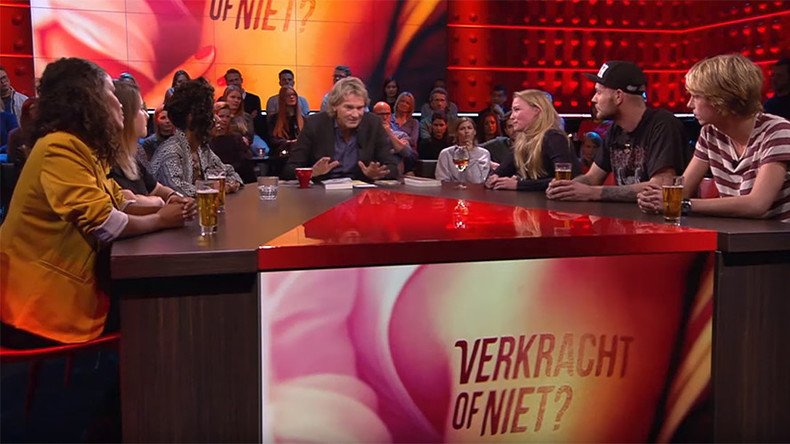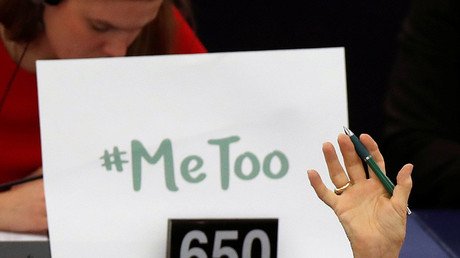A new Dutch TV panel show explores what constitutes consent, workplace harassment and rape, using actors to reenact some of the most notorious sexual assault cases ftom the country’s recent history. But many in the Netherlands are finding the premise of “Rape or Not” distasteful.
“Sex is a beautiful thing, provided both people see it in the same way. But if one of the people doesn’t see it that way, you need to have a conversation. What constitutes crossing the line? We want to have that conversation,” Bernard van den Bosch, the producer of the show that will broadcast through this month, told Algemeen Dagblad newspaper.
During the episodes, dedicated to potential rape at work, in social encounters, and within a relationship, a studio panel and audience reviews the evidence on the basis of staged and filmed clips, documents and testimonies from participants, some of whom have agreed to take part as themselves. At the end, each case is either a judge “rape” or “not a rape,” with users deploying hashtags on Twitter to signal their allegiance to various sides of the story.
The makers say that they were inspired by the sexualization of society when they conceived the format a year ago, but have welcomed the timing of the #MeToo movement, in which millions of Twitter and Facebook users have shared their testimonies of sexual abuse following the Harvey Weinstein revelations.
Van den Bosch hopes that his show can reintroduce “nuance” into the discussion.
“One person claims rape, the other says they are innocent. This is a personal situation. Our show is about this grey area,” said the producer.
‘Show turns all sides into losers’
Not everyone is on board with letting a group of strangers pontificate on such sensitive issues – and wonder about the consequences of the program on the real people behind the stories.
Professor Toine Lagro-Janssen, who runs a center that helps victims of sexual violence in the city of Nijmegen, says that not being believed is often worse for the victim than the rape itself.
"Such a verdict is so terribly harmful," Lagro-Janssen told the website Blendle. “If you do not recognize something, then you stop the victim from accepting that something has happened to them. And acceptance is the first step to processing and coping with the trauma.”
Prominent Dutch journalist Remy van Mannekes has also criticized the “extraordinarily bizarre” format on Twitter, saying that it turns “all the participants into losers.”
Several other social media users have also described the program as “nonsense” or said that it made them “disgusted,” as well as questioning whether the producers were exploiting the victims by luring viewers with the controversial title.
But the producers say that the program has been aired with input from the Netherlands Center for Sexual Violence, and should educate, not inflame public opinion.



